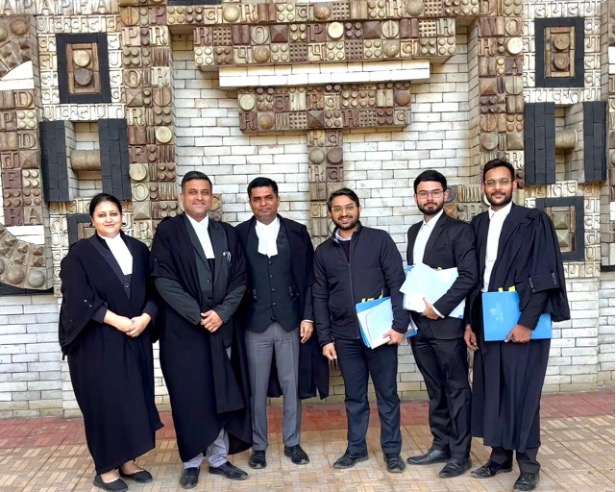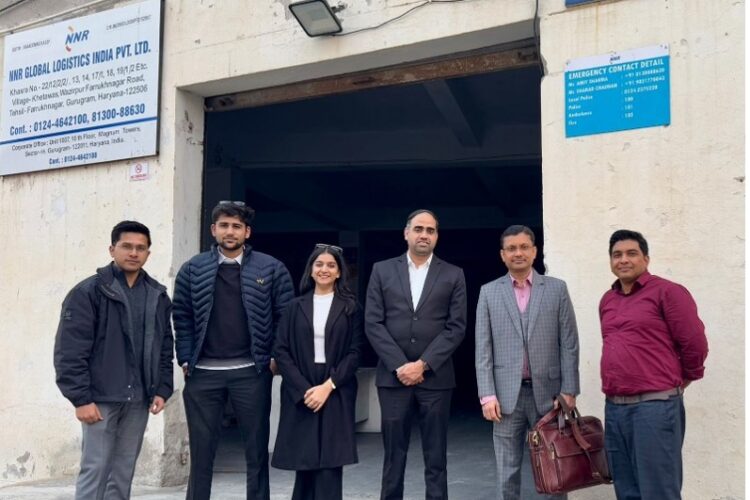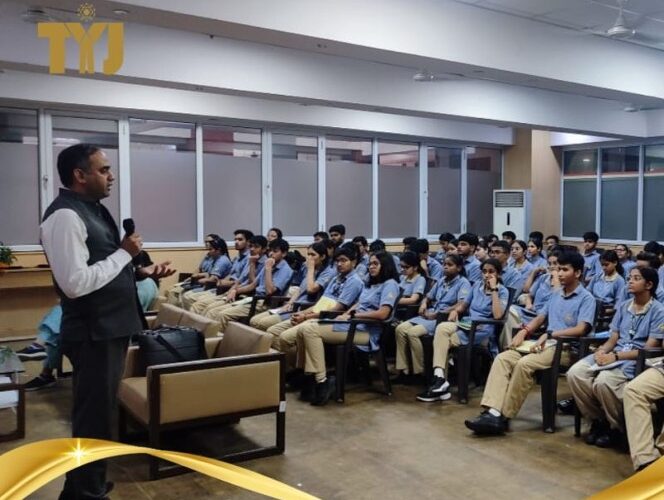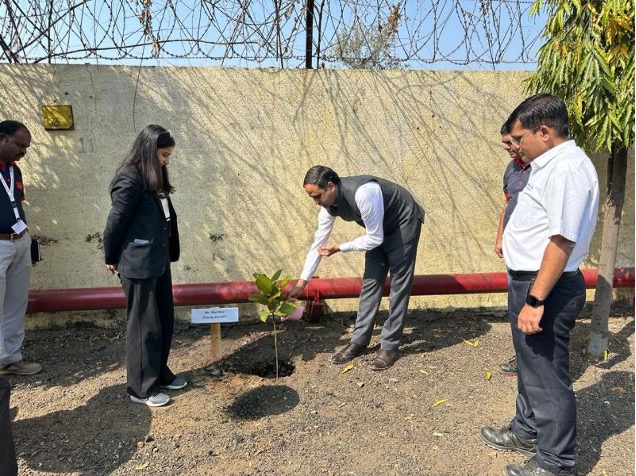January 30, 2025
TYJ Delhi Litigation Team Secures Stay Order from Hon’ble Delhi High Court

The Litigation Team at The Young Jurist (TYJ), New Delhi, has successfully represented a client in a complex banking legal matter before the Hon’ble High Court of Delhi. Demonstrating precision and preparation, the team secured a stay order at the very first hearing of the case.
This significant outcome underscores TYJ’s unwavering commitment to protecting client interests through strategic, efficient, and result-driven legal advocacy.
The matter was skillfully argued by Mr. Apoorv Kurup, Senior Advocate, with able assistance from Mr. Ritesh Khare and Ms. Nikita Anand. The TYJ Delhi team was led by Mr. Ritin Purohit, and ably supported by Mr. Yash Raj and Mr. Mukul Vats.
January 26, 2025
Empowering Workplaces Through POSH Training

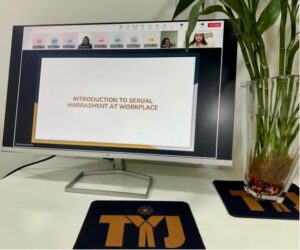

Creating a safe and secure workplace isn’t just a goal—it’s the foundation for transformative and lasting change.
The Young Jurist (TYJ) is proud to have successfully conducted a comprehensive POSH (Prevention of Sexual Harassment) at Workplace Training for the employees of our TSE-listed client, MISUMI INDIA, in our capacity as External Legal Members of their Internal Complaints Committee (ICC).
This impactful session was made possible through the dedicated efforts of Ms. Mehjaveen Marak, ICC Member, and Ms. Niharika Gupta, Senior Associate at TYJ, whose insights and guidance played a vital role in the training’s success.
At TYJ, we are committed to fostering safe, inclusive, and respectful workplace environments. Initiatives like these not only strengthen compliance but also empower organizations to build cultures where every employee feels valued, protected, and motivated to thrive.
January 24, 2025
Strengthening Partnerships Through On-Site Engagement
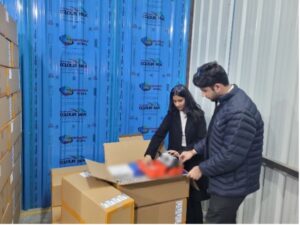

At The Young Jurist (TYJ), we believe that truly effective legal solutions begin with a deep understanding of our clients’ business environments. Our recent visit to the office and warehouse of our valued global client, Topcon Sokkia India Private Limited, was a significant step in reinforcing this approach.
This on-ground interaction enabled us to gain valuable insights into their operational and compliance frameworks, align more closely with their strategic goals, and offer legal guidance that is both practical and tailored to their industry.
We were particularly inspired by Topcon’s unwavering commitment to innovation and precision, reflected in their use of advanced, globally recognized technologies. Their dedication to excellence sets a benchmark in their sector.
Together, we continue to champion the principles of integrity, regulatory compliance, and sustainable growth.
October 24, 2024
Strengthening Compliance: TYJ Successfully Conducts EPR & BIS Audits for Japanese Client

At The Young Jurist (TYJ), we are pleased to share that our Corporate & Compliance Team has successfully conducted Extended Producer Responsibility (EPR) and Bureau of Indian Standards (BIS) audits as part of our regular engagements with one of our valued Japanese clients, MISUMI INDIA.
In line with our commitment to delivering legal and regulatory excellence, we thoroughly review the client’s operational framework to ensure alignment with applicable environmental mandates and BIS quality standards. This includes a comprehensive evaluation of internal systems, procedures, and documentation.
We also conduct detailed compliance analyses under the relevant laws and regulations to identify potential gaps or vulnerabilities. Our findings are supported by well-documented observations and recommendations.
Based on this assessment, we provide actionable legal and strategic insights to address compliance gaps and mitigate risks effectively. Our approach ensures that businesses are not only compliant but also positioned to build trust and long-term sustainability in their operations.
September 24, 2024
TYJ Conducts Legal Awareness Workshop at Salwan Public School

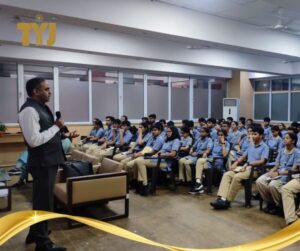
While The Young Jurist (TYJ) is often engaged by universities and organizations for knowledge sessions, seminars, placements, and professional guidance, this time, we had the unique opportunity to interact with the bright young minds of Salwan Public School, one of Delhi’s most prestigious institutions.
We are truly delighted to witness such forward-thinking initiatives aimed at introducing students to the field of law at an early stage—helping them explore future career possibilities and build a strong foundation in legal awareness.
A special note of thanks to Salwan Public School, Capt. Richa Sharma Katyal, and Mr. Dheerendra B. Singh for inviting us to conduct this dynamic and engaging workshop.
Our Partner, Mr. Raj Dev Singh, along with Ms. Niharika Gupta, shared invaluable insights into the significance of understanding legal principles, the essential role lawyers play in society, and the wide range of career paths within the legal profession.
Such meaningful collaborations go a long way in nurturing talent and inspiring the next generation of legal professionals.
The Young Jurist (TYJ) is proud to be part of this impactful initiative.
May 24, 2024
TYJ Participates in Tata Motors’ ESR Initiative



Strengthening Partnerships Beyond Compliance
During a recent visit to Tata Motors, our team at The Young Jurist (TYJ) had the opportunity to go beyond our core objectives of compliance assurance and due diligence by actively engaging in the company’s Environmental and Social Responsibility (ESR) initiatives.
As a thoughtful gesture, Tata Motors organized a tree-planting event for our team—a symbolic and meaningful act that highlights the importance of sustainability and shared responsibility.
This collaborative effort not only strengthens our professional relationship with Tata Motors but also reflects our mutual commitment to creating a positive impact that extends beyond regulatory obligations.
At TYJ, we believe that true progress lies in partnerships built on shared values. As a service provider, we remain dedicated to supporting our clients in driving sustainable, ethical, and socially responsible practices.
January 14, 2024
TYJ Successfully Conducts Legal Compliance Audit for FMCG Client



We are pleased to share that The Young Jurist (TYJ) recently conducted a comprehensive legal compliance audit for one of our esteemed clients in electronic manufacturing sector, marking a key achievement for our corporate legal team.
This assignment offered significant insights into the regulatory framework governing product labelling and packaging—an essential component of consumer compliance that directly impacts market transparency and legal conformity.
One of the key focus areas of the audit was the Principal Display Panel (PDP), which functions as the “face” of pre-packaged goods. It is critical that the PDP accurately reflects all mandatory information, including net weight, maximum retail price, and manufacturer details, in a clear and compliant manner. Effective packaging should inform, not confuse.
February 2, 2023
KEY HIGHTLIGHTS OF THE UNION BUDGET, 2023



“The Union Budget of 2023 hopes to build on the foundation laid in the previous budget, and the blueprint drawn for India@100. We envision a prosperous and inclusive India, in which the fruits of development reach all regions and citizens, especially our youth, women, farmers, IBCs, Scheduled Castes and Scheduled Tribes” – Smt. Nirmala Sitharaman, Finance Minister
Here are the Key Highlights of the Budget for certain industries presented by our Jurists Krishna Ramanathan and Nishtha Kansal:
#finance #development #india #unionbudget2023 #unionbudget #financeminister #financeministry #legal #legalnews #highlights
January 18, 2023
Legal Metrology Training at Halonix Technologies Pvt. Ltd.


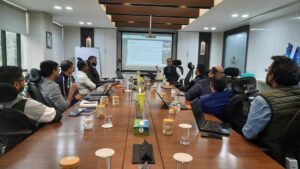
We’re happy to share that The Young Jurist (TYJ) team has successfully concluded a physical training under the legal metrology and allied provisions of laws for Halonix Technologies Pvt. Ltd. at their head office in Gautam Budh Nagar, Noida. Our Senior Jurist Mr. Raj Dev Singh and Jurist Manan Agarwal successfully delivered the training and explained the importance of maintaining the uniformity of standards in weights and measures being used in trade and transactions.
We’re grateful to Halonix Technologies Pvt. Ltd. for their long continued association with TYJ.
TYJ has an excellent track record for years in supporting several domestic and international companies with manufacturing units on the land to comply with the standards of legal metrology, food laws, Drugs & Cosmetics, Seeds Act & Insecticides Act. The expert team of TYJ takes pleasure in supporting companies with their legal metrology compliances and strives to achieve goals with utmost accuracy, skills, and legal knowledge!
January 18, 2023
Legal Metrology Audit at STL – Sterlite Technologies Limited (STL), Silvassa, Daman


We, the team at The Young Jurist (TYJ), are elated to be sharing that we have successfully conducted the physical audit in Silvassa, Daman under the legal metrology and allied provisions of laws, for STL – Sterlite Technologies Limited (STL), for its digital networks All-in 5G solutions. We have been accomplishing this exercise for several manufacturing companies on a regular basis for years. Our team is constantly looking forward to pursuing these physically hectic but well satisfactory tasks, for, the very change it brings from the operational floor of the law offices and courtrooms.
Thank you to the core team Krishna Ramanathan, Nishtha Kansal, Vasundhara Asthana and Manan Agarwal also special mention and our heartfelt gratitude towards our intern Kushagra Singh.
TYJ is proud to be associated with STL, which is one of the industry’s leading integrators of digital networks providing All-in 5G solutions. Their capabilities across optical networking, services, software, and wireless connectivity place us amongst the top optical players in the world. Wishing STL many more years of successful operations in Indian and overseas market!

